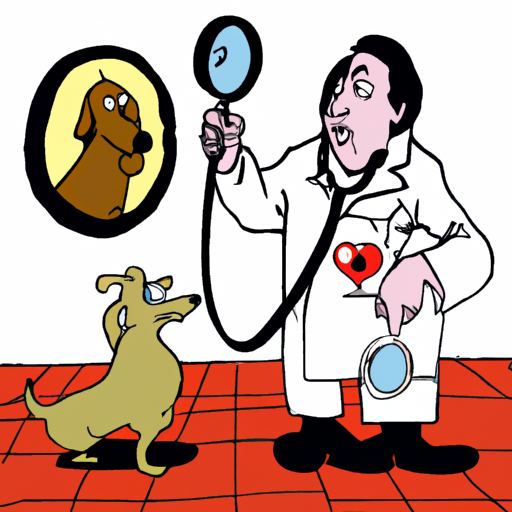As a loving caregiver to your four-legged companion, it’s essential to be aware of the potential threats they can face. One such hidden danger is heartworm disease, a severe and potentially fatal condition in dogs caused by parasitic worms. This article will inform you about the early signs of heartworms in dogs, so you can take proactive measures to protect your furry friend.
H2: Understanding Heartworm Disease
Heartworm disease is caused by a parasitic worm called Dirofilaria immitis. Infected mosquitoes transmit this disease, and when they bite your dog, they deposit larvae into their bloodstream. Over time, these larvae mature into adult heartworms that can cause significant harm to your dog’s heart, lungs, and blood vessels.
H2: Early Symptoms Of Heartworm In Dogs
Recognizing the symptoms of heartworm disease early can significantly improve your dog’s prognosis. Here are some signs you should watch out for:
- Lethargy: Your dog may seem unusually tired or less interested in physical activities.
- Coughing: A persistent, dry cough is often an early sign of heartworms.
- Weight loss and loss of appetite: Your dog may lose their appetite, leading to noticeable weight loss.
- Difficulty breathing: As the disease progresses, your dog may have trouble breathing, even at rest.
- Bulging chest: The chest may appear swollen due to fluid accumulation.
H2: Diagnostic Tests For Heartworms
If you notice any of the above symptoms, it’s crucial to take your dog to the vet for a check-up. They may perform the following tests:
- Blood Test: To detect the presence of heartworm proteins (antigens) in your dog’s bloodstream.
- Ultrasound or X-ray: To visualize the heart and lungs, particularly if the disease is advanced.
| Test Type | What It Detects |
|---|---|
| Blood Test | Heartworm proteins |
| Ultrasound/X-ray | Changes in heart and lungs |
H2: Treatment And Prevention Of Heartworm Disease
Treatment for heartworm disease can be a long and costly process, and it’s not without its risks. Therefore, prevention is always better than cure. Here’s how you can protect your dog:
- Use heartworm prevention medication as prescribed by your vet.
- Regularly test for heartworms, especially if your dog isn’t on preventative medication.
H2: Frequently Asked Questions
Q: Can humans get heartworms from their dogs?
A: No, humans cannot get heartworms from their dogs. The disease is primarily transmitted through the bite of an infected mosquito.
Q: How often should I test my dog for heartworms?
A: It’s recommended to test your dog annually for heartworms.
Q: Can indoor dogs get heartworms?
A: Yes, indoor dogs can get heartworms as mosquitoes can get inside homes.
Remember, as a caregiver, your vigilance can save your dog’s life. Stay informed, take preventative measures, and always keep an eye out for the first signs of heartworms in dogs.



